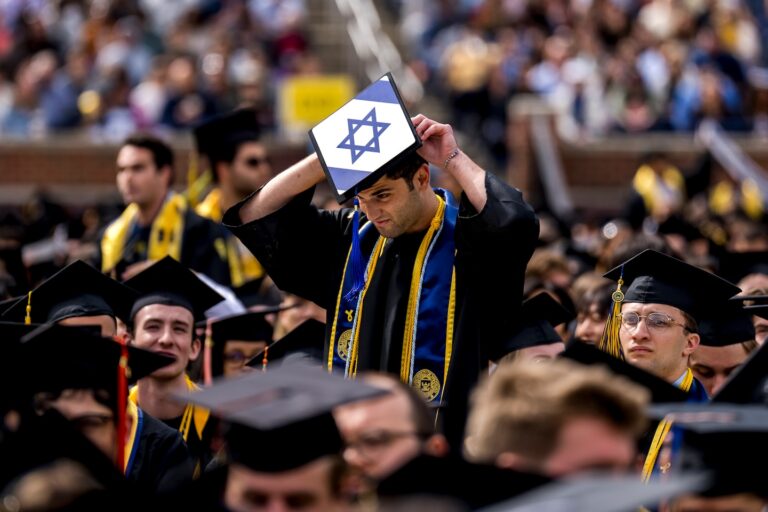“Hate has absolutely no place on college campuses,” Education Secretary Miguel Cardona said in a statement. He called the resolution a positive step but said, “Unfortunately, in recent months, we have witnessed a series of extremely disturbing incidents.”
The cases are the first the Education Department has closed since Oct. 7. The department’s investigations related to anti-Semitism and Islamophobia have been pending since before the war, but the number has skyrocketed as college campuses across the country have been engulfed in pro-Palestinian protests. The Education Department’s Office for Civil Rights has 106 additional cases pending involving both universities and K-12 school districts, a spokesman said.
CUNY Chancellor Felix V. Matos Rodriguez said,
The university thanks the Office for Civil Rights for working with it on a comprehensive plan to ensure the safety of all students on campus. “CUNY is committed to providing an environment free of discrimination and hate, and these new measures will ensure consistency and transparency in how complaints are investigated and resolved,” he said.
University of Michigan President Santa J. Ono said in a statement that the university condemns “all forms of discrimination, racism and bigotry.” He added that “since October 7, we have been deeply troubled by the words and actions of some members of our community.” Ono said the university is bound by free speech principles, including reprehensible speech, but strives “to ensure that discussion does not devolve into targeted harassment or bullying.”
The University of Michigan study said its Civil Rights Office will review 75 reports of harassment and discrimination starting in the 2022-23 school year. The investigation found that the university conducted virtually no investigation, and the report said there was no “evidence” that the university complied with legal requirements under Title VI of the Civil Rights Act, which prohibits discrimination on the basis of common ancestry, including Jewish and Muslim.
The investigation details highlight universities’ struggle to balance free speech with harassment. Incidents cited in Michigan’s report include anti-Semitic comments in class, at protests and online.
The investigation found that one of the incidents involved protesters yelling about “freeing the Nazis” at an event on Ann Arbor’s central campus in October 2023. The Office of Civil Rights said the university sent a report to its public affairs office asking for action but found no evidence it took any further action.
That same month, a Jewish student reported being targeted and harassed on social media, according to the office. The student reported viewing a graduate student instructor’s Instagram Story, which included pro-Palestinian topics. The instructor then took a screenshot showing the student had viewed the Story, and later posted his own Story, tagging the student and showing an Israeli flag in his profile. “Did you like my educational lecture,” the instructor wrote.
The university declined to formally adjudicate the case, arguing that social media is “largely protected as free speech,” the investigation concluded. This response was deemed insufficient.
In another widely publicized incident in November 2023, a student reported that someone yelled at him that he had “terrorist” friends because he had participated in a pro-Palestinian protest. The university responded with a restorative circle, a commonly used alternative to disciplinary action to encourage those involved to apologize, but took no further action. This, too, has been cited as a case of inadequate response.
“Everyone has the right to learn in an environment free from discriminatory harassment based on their character,” Katherine E. Lamon, Under Secretary for Civil Rights at the Department of Education, said in a statement.
There were nine complaints pending at the City University of New York and its affiliated universities from both Jewish and Muslim students, but the settlement agreement announced Monday covers them all.
In the earliest case, an investigation found that Hunter College students and faculty occupied a required college course in 2021 to protest the so-called decolonization of Palestine. When Jewish students tried to speak up, they were told to just listen, not speak, investigators found. The federal investigation concluded that Hunter College’s response to the incident was inadequate.
To resolve these complaints, the universities agreed to, among other things, reconsider or reopen previously filed complaints, report the findings to the federal government, educate employees about the universities’ legal obligations to respond to allegations of discrimination, and conduct climate studies to assess the extent to which students and employees have experienced or witnessed discrimination or harassment based on race, color, or national origin, including common ancestry.

